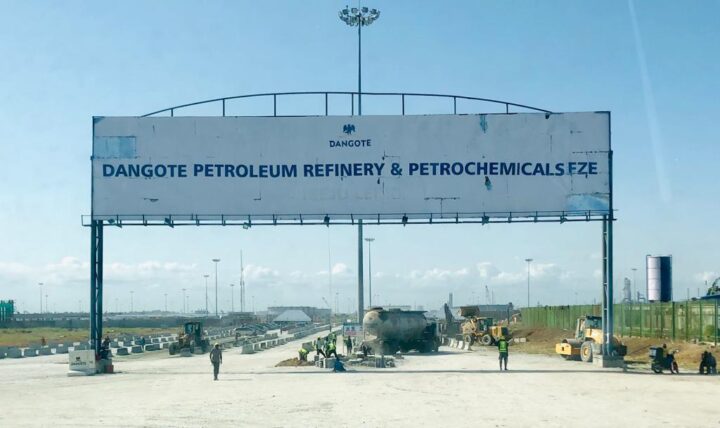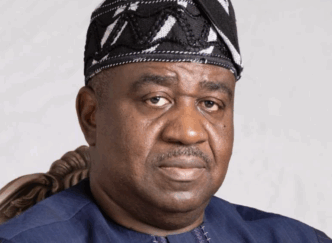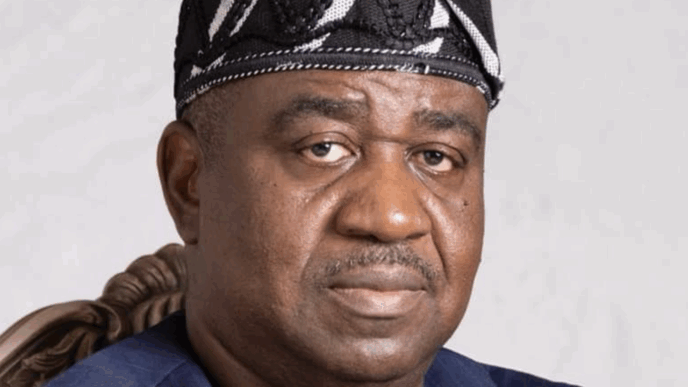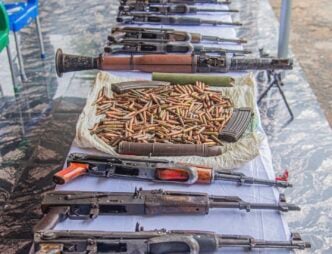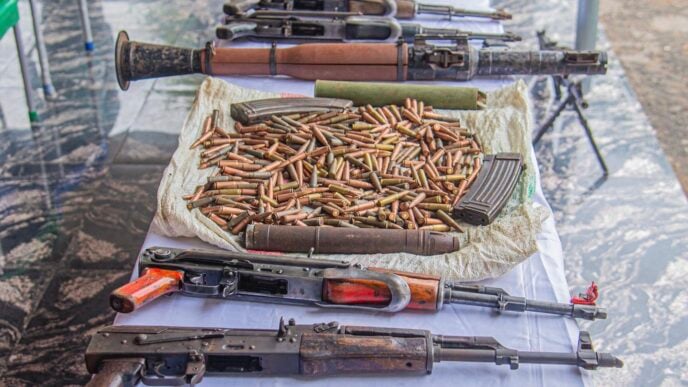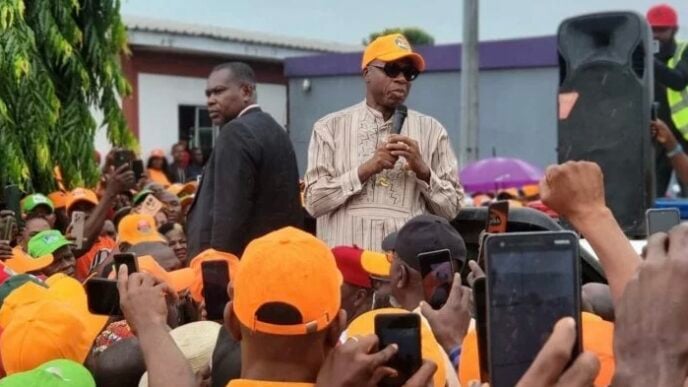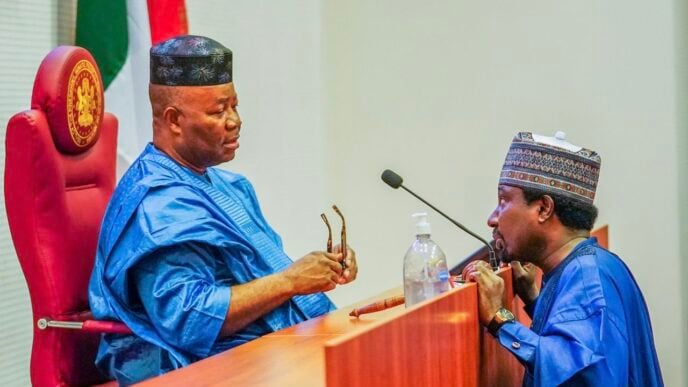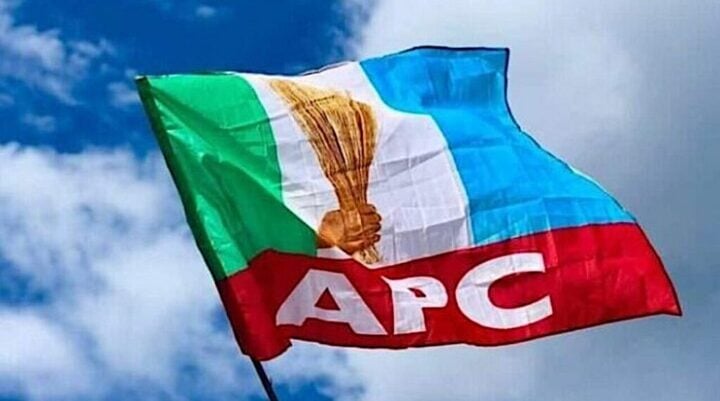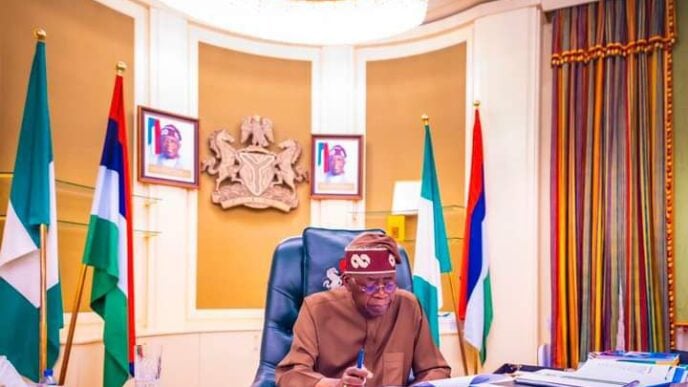The Depot and Petroleum Products Marketers Association of Nigeria (DAPPMAN) says its members are experiencing petrol supply and pricing challenges with Dangote refinery.
Olufemi Adewole, executive secretary of the association, spoke on Wednesday during the West African Refined Products Pricing and Markets Development Conference in Abuja.
Adewale said the refinery deploys restrictive sales methods as well as price setting for its partners.
“Since the advent of Dangote Refinery, it has not been smooth sailing at all. We had preliminary meetings with the management of Dangote refinery. We had promises and assurances that we will be accommodated,” he said.
Advertisement
“We are ready and up till now we’re still ready and willing to patronise Dangote. But the issue is, is Dangote ready to give us a product we want?
“There are about 120 depots in the country, out of which DAPPMAN members make just about 32. These 32 members, not adding Major Energies Marketers Association of Nigeria (MEMAN) members, have a storage capacity over 2 million metric tonnes.”
The downstream marketer said the association can supply petrol for 41 days and diesel for 50 days without any interruption.
Advertisement
“We need the product and we want the product from Dangote,” he said.
Adewole said the association registered with Dangote refinery for petroleum products supply.
“But when we got to Dangote to give us the product, we discovered that he deployed a restrictive sales method. Prices were not given to us,” he said.
“It is when you get in, they now give you a proforma invoice (PFI), but he has a selected group that he wants to trade with.”
Advertisement
The refinery, according to the marketer, prefers gantry loading.
“Our business structure: we have members that have 400, 300, and 200 retail outlets and we have those that have less than 50; we have members that have just 10 retail outlets,” he said.
“You cannot tell somebody that has 400 retail outlets spread over this country to bring trucks to Lekki to come and load for 400 filling stations. It’s not feasible, it’s not workable. The facilities will be degraded fast before you know it.”
Adewole said due to the association’s business structure, members lift petroleum products by coastal marine vessels.
Advertisement
However, he said Dangote “releases prices for retail” and “holds on to coastal prices,” adding that “this means we cannot access the product”.
“Those vessels from his refinery to our depots, but at the same time, for those selected few partners, this is allowed to them. He gives them coastal supplies, he delivers to them,” Adewole said.
Advertisement
“So we have not had it easy, but the beautiful thing is the PIA allows us, if we don’t get the product from Dangote, our first option is not to go ahead and import, but rather buy from Dangote because we’re going to buy in naira.
“But we’re going to source FX to get the product from outside the country. But if we are getting the product from outside the country and the price is cheaper, of course we will go for it.”
Advertisement
He added that any marketer that “sees the opportunity to get in the product at a cheaper rate will go for it, and that is why you keep having people go to Lomé every time”.
MARKETERS ASK NMDPRA TO CURB MONOPOLY
Advertisement
Speaking further, he asked the Nigerian Midstream and Downstream Petroleum Regulatory Authority (NMDPRA) to checkmate anti-competitive acts.
“We want them to be able to promote competition and checkmate any anti-competitive act from anybody along the value chain,” Adewole said.
“We want them to be able to guarantee the survival of the big players and the survival of the small players.”
Also speaking, Clement Isong, executive secretary, MEMAN, said when there is a dominant player, the regulator must intervene to make sure that all players have access to products, goods and services.
“It is true that if an investor puts his money in a massive investment, trying to take advantage of economies of scale or distribution, in CNG for instance, that every investor should be able to take advantage of his innovation,” he said.
“Having said that, the regulator also does not want to arrive at a point in time in which there is no other player in the market, there is only one player.”
Isong added that the scenario “is not a market, that is a monopoly”.
